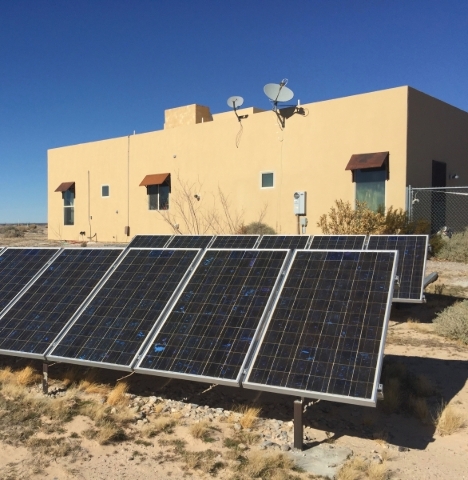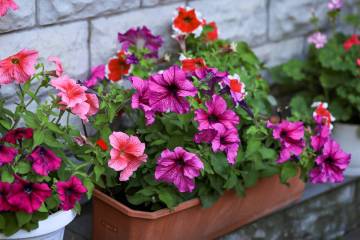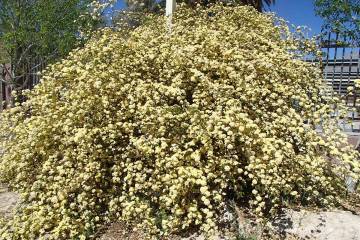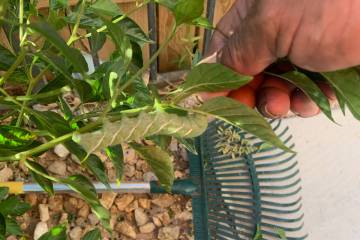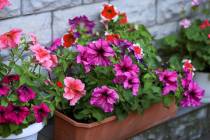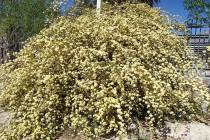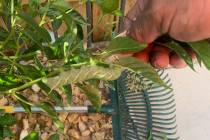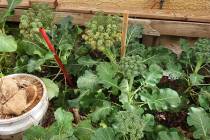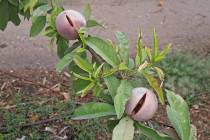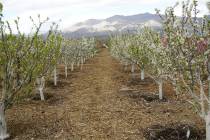Off the grid, how to leave big oil, big agriculture, and big power in the dust.
Gas, food and electricity are three sources of energy that fuel our lives. Without them, we cannot move, connect or nourish our bodies.
For most of us, that means dependence on big oil, big agri-businesses and the big power industries. Unfortunately, the way these mega-industries extract, produce and transport our precious resources to satisfy our ever-increasing appetites, inevitably impacts our planet, affects our climate and is pushing us toward an unsustainable future.
Are we stuck with this dependency model? Do we have any other choice?
About a decade ago, my husband and I owned a family restaurant in Henderson. Gas prices were high and we had two active teenage drivers. I saw a local news report about people who had converted their diesel car engine to run on used vegetable oil.
Being a small business, we were always looking for ways to cut our costs. We had plenty of used vegetable oil from our tempura fryer and were paying for a huge container to hold it and a company to haul it away every month.
I quickly contacted the reporter (who also had a converted car) and gathered all the information on how to convert a regular car to a "grease car." Within a short period of time, my daughter converted her car to run on our used tempura oil.
We realized we had enough oil each month to help fuel the reporter's car and two other restaurant guests who also had "grease cars." Not having to pull up at a gas station every week and pay for gas was a great freedom.
Living off the grid for food has always seemed like an impossibility in the desert, but not so much any more. Southern Nevada is blessed with numerous visionaries in the form of farmers, educators, nonprofit support groups and community-minded businesses. More and more, residents, organizations and schools are learning how to create rich for raised or sunken beds to grow healthy, organic whole foods.
The Springs Preserve holds on-going lessons on gardening in the desert. There are some 270 master gardeners who volunteer their time and knowledge at the University of Nevada Cooperative Extension. Or if you want help deciding what to do in your own yard, Garden Farms of Nevada has super talented and experienced farmers who will come to your home and give you a free estimate on a variety of options.
Eating food that you or someone locally has grown is healthy, low-carbon and one more step toward food independence.
In my mind, however, the ultimate examples of living off the grid are Kimberly and Jim Forney of Sandy Valley. This working couple originally saved their funds and bought land in Sandy Valley to build their home. Their property happened to be on the one street run by Nevada Power and not Valley Electric.
The couple had a meeting with Nevada Power to discuss connecting to the visible transmission pole at the edge of their property. The folks from Nevada Power rolled out the blueprints, "which they didn't think we could read," said Kimberly; both Jim and Kimberly are competent electricians.
The power company proceeded to point to a much further connection and rattle off all the charges that the Forneys would be responsible for in order to drag the line all the way to their property. Kimberly and Jim would essentially foot the bill and Nevada Power would conveniently be set up to add future connections to the new line.
When the couple asked about connecting to the obvious transmitter nearest their property, the blueprints were quickly folded up and the meeting came to an end. That was the point they both decided to go off the grid.
The couple have built a beautiful energy-efficient home. They grow their own vegetables in raised beds and have a small greenhouse that Jim built with recycled glass from the old Aladdin. They pump water from their well and produce enough energy from the solar panels to provide all their needs. They store the access energy in batteries, which supplies them at least three days worth of energy for sunless days.
With the exception of buying some gas for their heating and cooking, they have no utility bills. It's been nearly 15 years, and they have always had more then enough energy, even during the summer months when their teenage nephews come to stay.
After reading the recent astonishing report in Rolling Stone magazine about the intentional blocking of rooftop solar in sunny states such as Florida, Arizona and Nevada, I applaud Kimberly and Jim for their foresight and positive example of moving beyond grid-lock in a blocked system.
As I left their house, Jim said, "We've learned a lot. One thing is we've learned is that we don't need much."
I chuckled, thinking they have so very much. They have peace of mind, independence, health, experience, two spoiled dogs, fresh food and free energy from the sun.
We all may not be able to convert our car engines to run on used vegetable oil and grow our own food (although many can and do in Southern Nevada). And we all may not be as talented and passionate as Kimberly and Jim Forney. However, we can be conscientious about everything we do and use. Certainly, this kind of change is needed and beneficial.
The biggest off-the-grid action that we can all take is less action. Riding a bike or walking in this amazing weather instead of driving everywhere means less trips to the gas station. Growing our own food or buying from a local farmers market decreases our dependency on processed foods. And becoming deeply aware of the energy we use and where it comes from could lead us in a direction of needed change.
Things change quickly. We may all find ourselves, one day soon, asking: "Remember when we used to have electricity bills?"
— Mary Beth Horiai has split her adult life between Japan and Southern Nevada. In Las Vegas, Horiai works for the nonprofit Green Our Planet. A graduate of UNLV, she was trained as a speaker for The Climate Reality Project and teaches part-time at the College of Southern Nevada. For more information and links to additional resources relating to this column, visit www.driverofchange.net.



